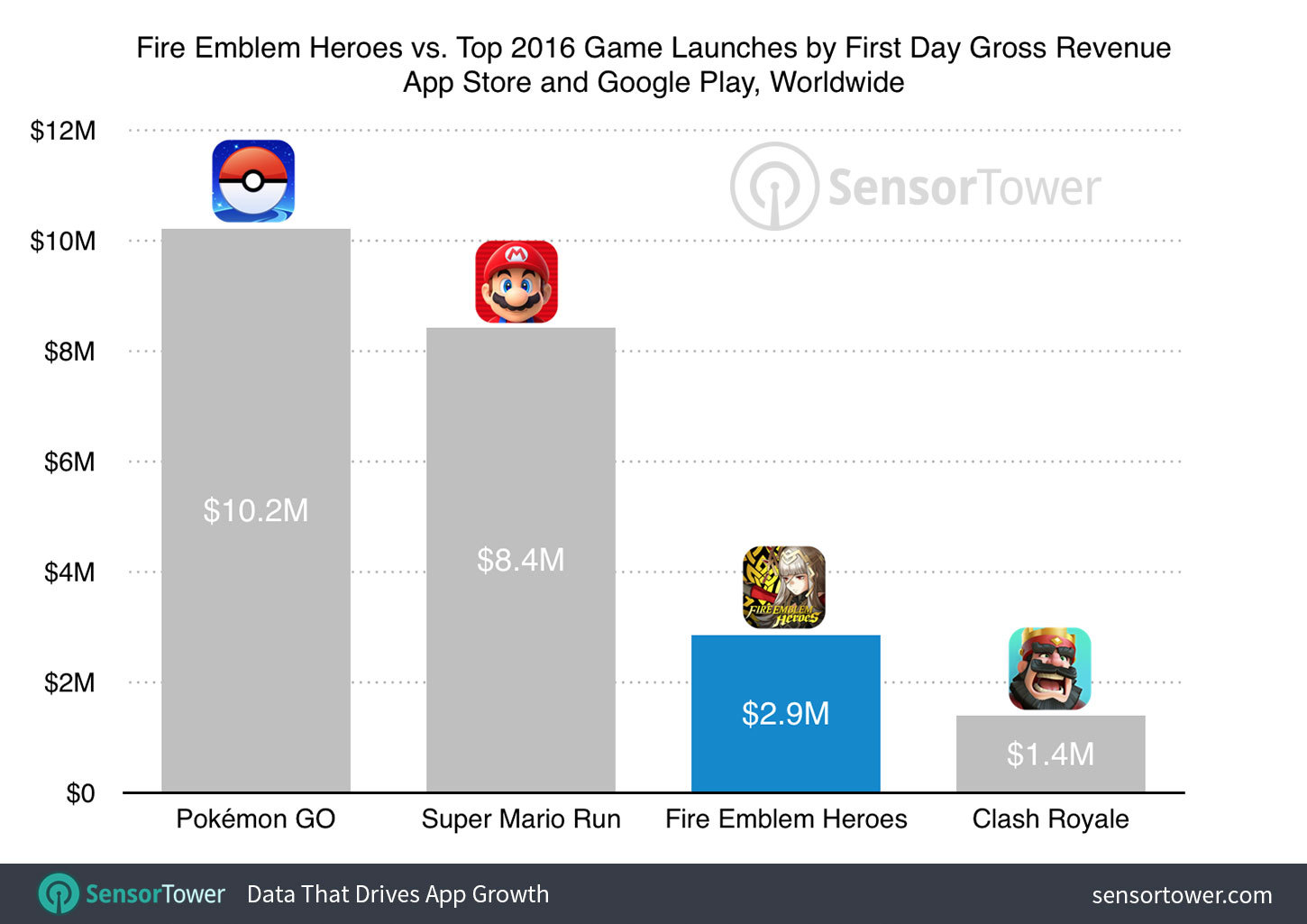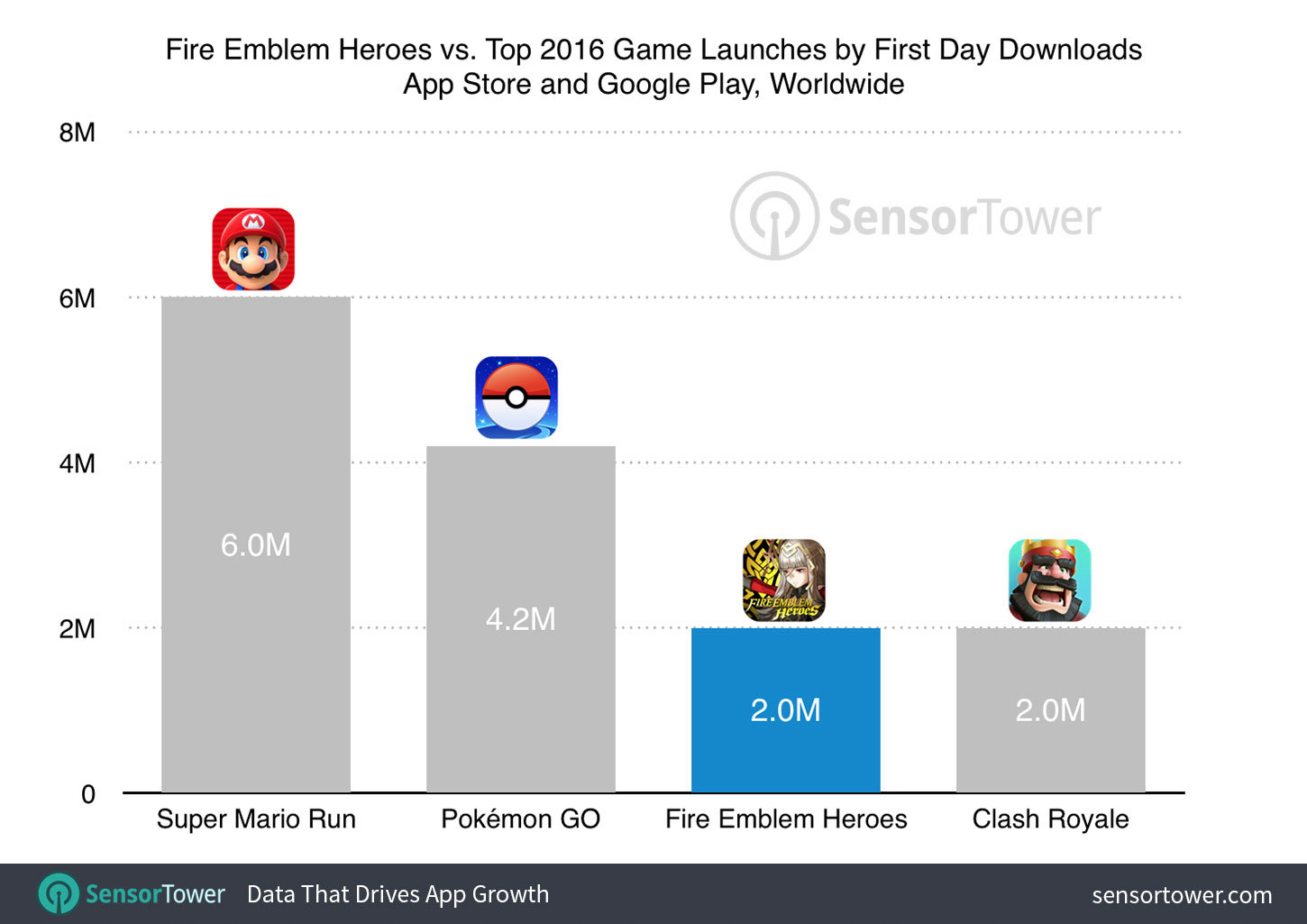Day 3:
Fire Emblem: Still #3 in Japan, has gotten to #8 in the US. While Dragon Ball Z: Dokkan Battle has hit #4 in the US on two separate occasions, it's only ever been at #8 on three separate occasions, with everything else being notably lower than that. Fire Emblem may end up as the strongest Japanese gacha game in the West in the long term, though we'll obviously need to see how it does during events and off-event periods.
Dissidia has moved up to #55, which for a launch still really isn't very impressive. The user ratings are also way worse than Fire Emblem, so I wouldn't hold my breath on this game becoming a big performer anytime soon even if it settles into moderate success.
Sensor Tower made some Day 1 estimates of Fire Emblem's success. It's worth noting that they actually underestimated Super Mario Run's download count by 15 million (they had it at 25 million in the time period Apple had it at 40 million), so these are quite possibly lower than reality:
So far I've been very impressed with Nintendo's first real mobile f2p effort and am interested in seeing how it evolves. Similarly, I'm curious to see exactly what Animal Crossing is, since that's a somewhat harder pitch given current market trends, but still has potential.
Re: Negativity, I think the fundamentals of the market suggest that the incentives for publishers are still to invest in mobile, Asia, and/or the West, and that will continue to put negative pressure on Sony and Nintendo's dedicated device businesses domestically.
The short explanation of this is that companies who are invested in a declining business trim back their offerings to their most successful products (see Capcom focusing on products like Monster Hunter and Ace Attorney for the local Japanese market) while spending the rest of their resources on growth markets, or at least markets with notably more success. The exception to this is when the company feels they're unlikely to have success in any other (more successful) business, so they may end up even increasing their investment in the existing business. This is quite rare though, and is primarily true of companies who don't define the market or heavily impact its success. Since people ultimately buy hardware to play games, this lowers the amount of people who want to buy hardware, which in turn incentivizes publishers to keep investing elsewhere. Similarly, even if hardware sales are maintained, consumers may end up buying way less software if there's notably less that interests them, which again causes publishers to invest elsewhere. We've certainly seen devices where hardware sales were looking okay, but their cumulative software sales were way down overall.
Unless people think there's something that will cause very significant growth in the Japanese dedicated market, or make mobile, Asia, and the West vastly less attractive to Japanese publishers, that pressure is unlikely to go away, which will cause the dedicated devices in the industry to have increasingly bad results overall, even if individual products or years look better than their most recent comparison point. Could that happen? Sure, but I don't think there's much at the moment to suggest that's likely, so I don't think it's weird that people would be negative. You can simply look at the sales results of almost every major series, along with the overall market shrinking to the size it was in the late 1980s, to notice what impact this has been having on the market.
If you don't like negativity in a thread about a declining market, then you'd probably be better off just reading game OTs and articles about how awesome this year's crop of Japanese games are. I'm sure you'll find much more positivity there.


